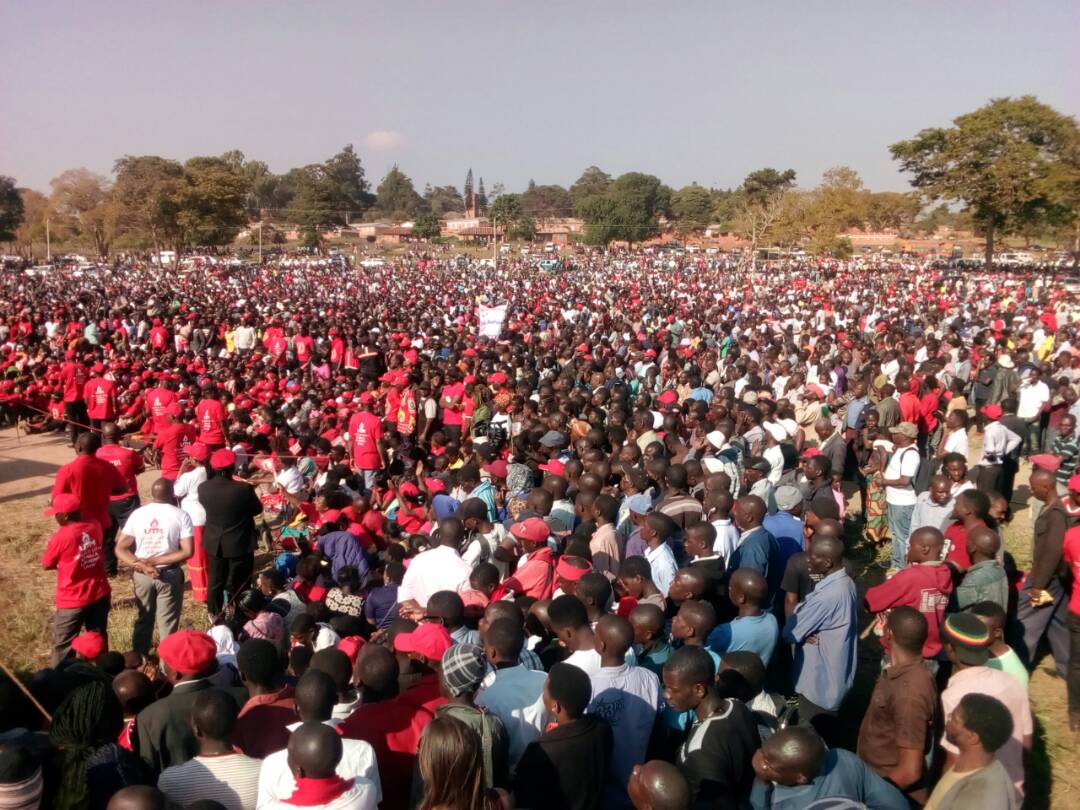Relief in cattle farming for Chambwe Cooperative
Conventional wisdom has it that when the bush is on fire, a chameleon learns how to run fast.

The saying puts much emphasis on the necessity of responding and adapting to any changes in an environment for survival.
The threats from climate change are putting millions of people in developing nations under severe pressure of food insecurity and untold poverty through climate shocks such as drought.
Livestock production is seen as one way of cushioning vulnerable populations from climate change impacts.
But for one group of ordinary villagers in Mphaza Village, Traditional Authority Njewa in Lilongwe, the very real threats but this time in an agribusiness environment has forced them to change their livestock production business from poultry to cattle farming.
This grouping, called Chambwe Cooperative, is engaged in individual and group businesses through investments from their savings and loans.
A large-scale monopoly production by a new company that arrived in their area about a year ago has squeezed the cooperative out of poultry farming business.
“People and institutions are rushing there to buy chicken because the company sells at lower prices than us,” said Macdonald Khoma, chairperson for Chambwe Cooperative.
While the cooperative offers its chickens at K2,500 each, the company sells at K1200 or K1300 each the same size of chicken.
With the company boasting the capacity for mass production as well as self-production and processing of chicken feed, the cooperative was far much behind in standing toe to toe with the new company.
But now Chambwe Cooperative has switched its focus to cattle farming by rearing these ruminants for beef production.
Through the Sustainable Agriculture Production Programme (SAPP), the group is now rearing 20 cattle under stall feeding and pass on programme.
“We wrote a proposal to SAPP asking for funds amounting close to K4, 5 million for our new venture and it was successful,” Khoma said.
SAPP is a nine-year programme under the Ministry of Agriculture, Irrigation and Water Development.
Implemented in six districts in the country including Lilongwe with financial support from the International Fund for Agriculture Development (IFAD), the programme intends to reduce poverty and improve food security among the rural population
One of the components in this initiative is the pass-on programme of livestock such as goats and cattle.
Primary beneficiaries receive livestock of their choice, in this case cattle, to take care of. When a cow gives birth, a calf is passed on to a secondary beneficiary and the process continues like that until everyone owns cattle.
For Chambwe Cooperative, 20 people are rearing the cattle through stall feeding and pass on programme.
One of the primary beneficiaries is Lauryn Sava of the same Mphaza Village. She has two cattle, a cow and bull, and the latter is the one she bought herself at K145, 000.
“Currently, the cow is in gestation. It will conceive in a few months to come,” said Sava earlier in July this year.
She is patient for her cattle farming and is hoping that she should be able to make more money once the animals have multiplied and matured.
The investment and benefits in cattle farming is long term for Chambwe Cooperative and that is why it is also doing a similar initiative with 25 goats for short term and medium-term benefits.
Formed more than five years ago as a community savings group, Chambwe Cooperative has a membership of 120 people, 75 women and 45 men.
Since its formation, it has practiced the concept advanced by the Community Savings and Investment Promotion (Comsip) Union whereby members are encouraged to share only their dividends after a year of savings and borrowings.
Members contribute shares at a minimum of K2000 per month and over the years their fortunes have grown because of the support they have received from Comsip through various training grants.
With their assets standing at admirable value of MK16.8 million, the group harbours ambitious plans. Some of them include construction of shop rooms for rent, buying of two maize mills and a coaster.
“We want to empower our members to employ themselves and other people,” Mwale said.
Chambwe Cooperative is one of the few groups that is so resourceful in searching for support from other quarters apart from Comsip, said Mercy Kachere, senior community development assistant who supervises the cooperative and other groups in T/A Njewa.
“They are able to write project proposals to seek funding from various organizations to support their activities. The SAPP initiative in cattle farming is one case in point,” Kachere said.
Information, Education and Communication Officer for Comsip Emmanuel Muwamba commended Chambwe for casting its net wide in search of financial support to supporting its activities.
“Cooperatives are autonomous entities, they are free to seek support from other development players, it’s encouraging that this group is doing that,” Muwamba said.
The uniqueness of this cooperative lies in its five-year strategic plan guiding their vision from 2017-2022.
Activities in this local blue print intend to boost its financial base from the current K16.8 million to K25 million within that period, according to the chairperson Macdonald Khoma.
This money should be enough capital for the cooperative to cushion its businesses from any risk or threat.
“With this financial base, we can stand any bullying in business. The poultry farming experience has taught us the hard way,” Khoma said.
Follow and Subscribe Nyasa TV :




COMSIP Sharp!!! Bravo Chambwe COMSIP Cooperative, Bravo Mercy Kachere